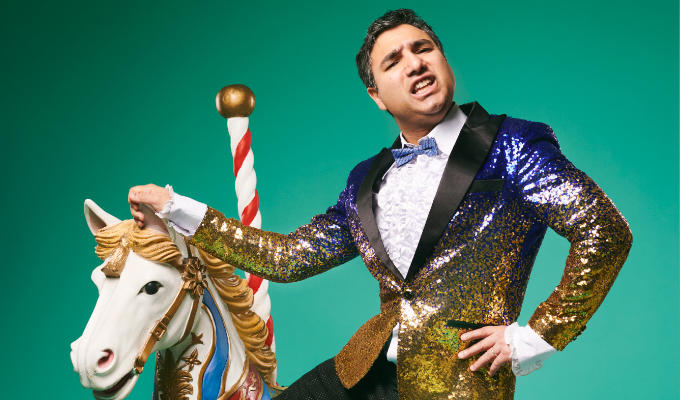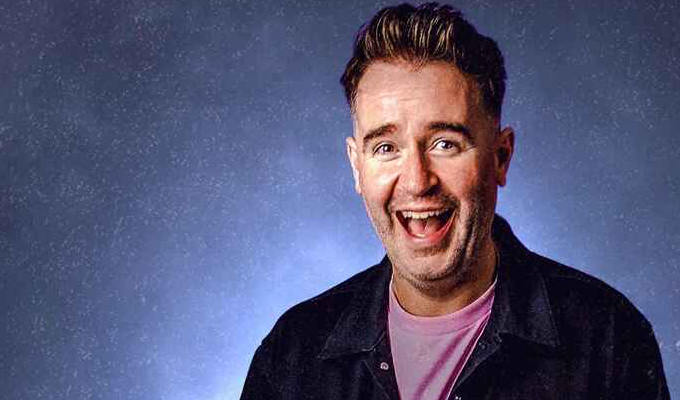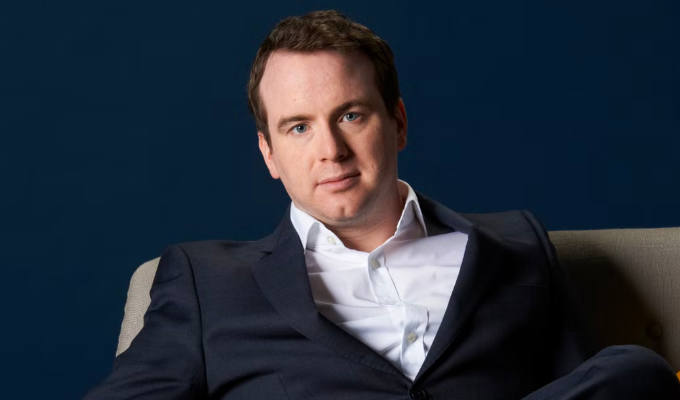Billy Connolly: Hammersmith Apollo September 2004
Note: This review is from 2010
Review by Steve Bennett
There’s no escaping the fact: at 61, Billy Connolly is officially old. There are comics with grandfathers younger than him; and not just a few, either.
He really needs glasses to read his notes; the material these days will more likely concern a medical procedure than the shameless exploits of a drunken night out; and if, at his age, the mind begins to wander, imagine what that means for Connolly’s, which was always nomadic at the best of times.
But age has not withered him, nor a dozen dodgy Hollywood projects damaged his instinctive, impressive abilities as a stand-up. When he’s in his natural habitat of the stage, he’s the maestro of British comedy - as inflamed, passionate and animated as he ever was.
It’s been a while since he played London, and he’s greeted like a conquering hero, a deafening cheer meeting his shambling entrance, and each early joke attracting appreciative, sustained applause. That laugher, not clapping, is the reflex response to comedy is unimportant: in these early moments, the 3,600 members of the Hammersmith Apollo’s standing-room-only audience just want to pay tribute. The genuine, instinctive laughs come later.
That he’s among friends lets him get away with anything during the course of his Too Old To Die Young show; whether that means material that’s in dubious moral taste or, dare I say it, even pedestrian.
When it comes to the former, he finds jokes in the plight of British hostage Ken Bigley – or at least his uncompromisingly honest response to the news coverage of it – proving that he can be as edgy, or downright offensive as any pretender to his crown.
Of course he’s forgiven for the lapse in taste: everyone loves Billy. And his seductively haphazard style plays no small part in that.
A Big Yin gig never runs to any particular order, more it’s a jamming session of his thoughts. He leaps back and forth through anecdotes, taking unscheduled detours Virgin Railways would be proud of, until, finally, remembering to return to tales you’d forgotten he had started. "Sometimes I forget what I’m saying," he admits. "So I just keep talking until I remember."
These off-the-cuff moments are as good as anything he’s prepared. When he spots a Motorhead T-shirt in the front row, he’s fired into a spontaneous riff on rock and roll, illustrated with personal memories and anecdotes and providing an occasional, running theme.
He guffaws at the way he fumbles his own stories – at one point doubling up with hilarity at an aside that suddenly occurs to him, but that he fails to get out through the laughter – and the audience instinctively joins in. The fragmented style helps him out in other ways too: not every anecdote needs a punchline if you can simply flit on to another story when you get bored.
There are some enduring themes in all this: most notably his long-established railing against the beige people and his pet subject – the bunk of organised religion. He’s not so much a grumpy old man as an angry one, becoming infuriated at any number of frustrations. At one point he even has to remind himself: "Don’t get angry, you’re supposed to be a comedian."
But of everything he tackles, his forte remains the bodily function. The comic who got famous for his talk of ‘jobbies’ can still create a real symphony of scatology, most notably with an outrageous, exaggerated riff about the fat-busting drug that hilariously lists its side effects as ‘unstoppable oily discharge’.
To the chagrin of many class warriors, Connolly’s long since put his tenement days behind him – literally, as it happens, since a depiction of his slum housing now forms the backdrop to his set – and is now openly boastful of his many, big houses and unafraid to start anecdotes with: "So I was with Keith Richards…" What’s more, this detachment from lives more ordinary doesn’t matter one bit: the stories are still funny.
But at the two hours mark, the concentration does start to drop. And it doesn’t help that at this point he’s talking about the inanity of makeover programmes, as if we didn’t know.
That’s not the only bit that doesn’t shine: routines about the complexity of ordering Starbucks, pissing on urinal cakes, the difficulty of finding the 6ft 7in dialysis patient Osama Bin Laden, or what a man’s supposed to do with his redundant arm while lying in the spoons position all sound remarkably ordinary.
We could well do without these, not least because any show coming in at just under three interval-free hours is enough to try anyone’s patience, let alone buttocks.
There’s a brilliant 90-minute show in here (which, I suspect, may be what ends up as a DVD release), but as it stands, this evening is as long as Citizen Kane and Battleship Potemkin combined, and no one man’s that interesting – even if Billy Connolly comes close.
You know, these old blokes don’t half go on a bit…
Reviewed: September 28, 2004
Review date: 6 Jan 2010
Reviewed by: Steve Bennett
Reviewed at:
Eventim Apollo






